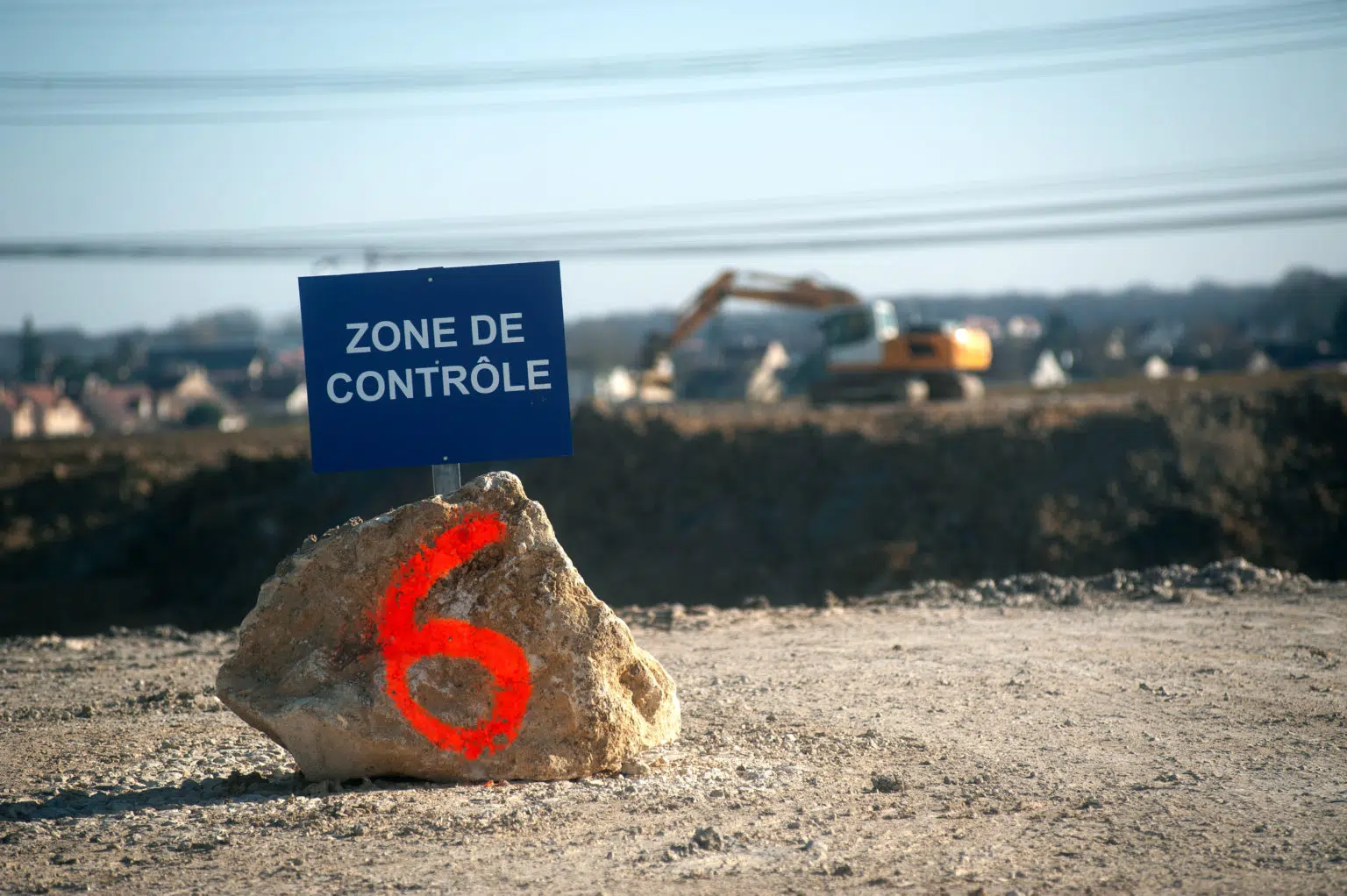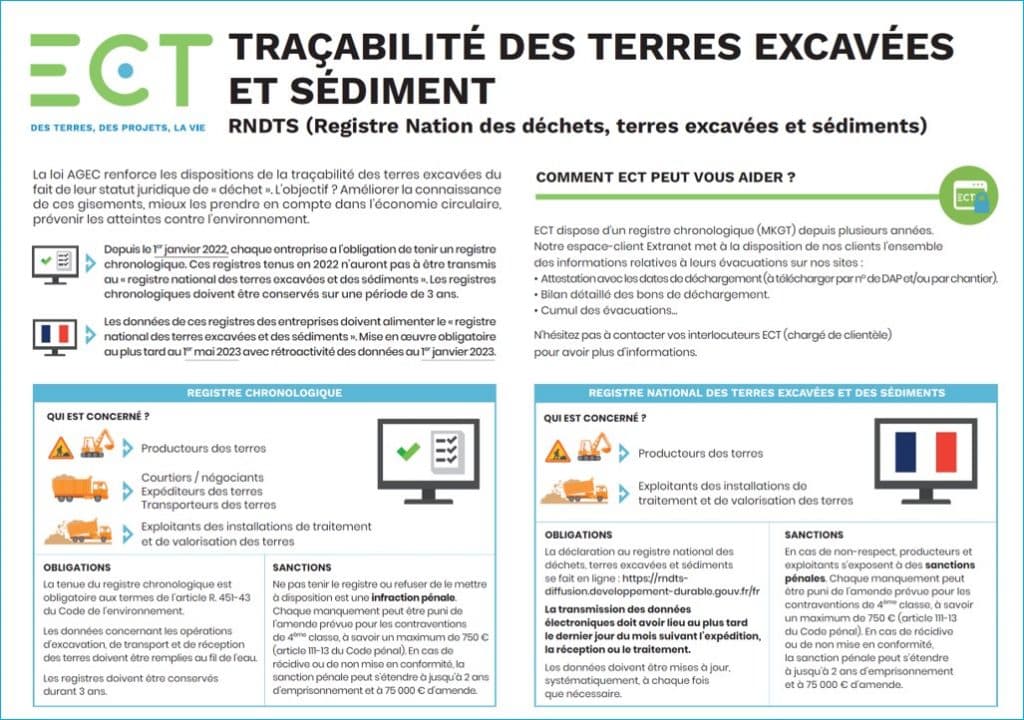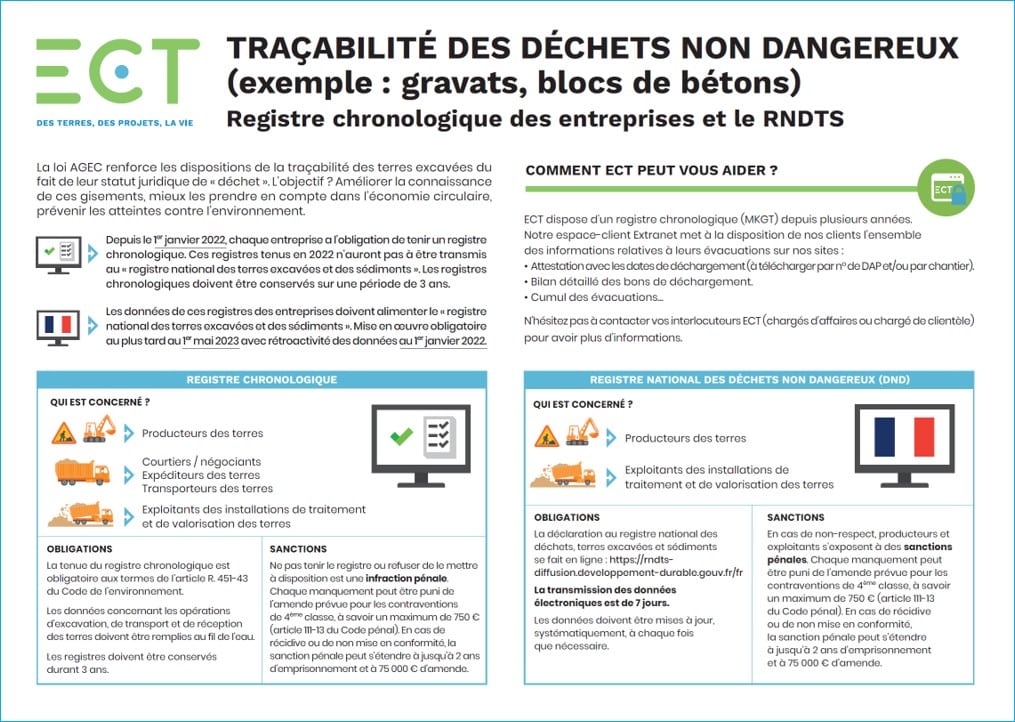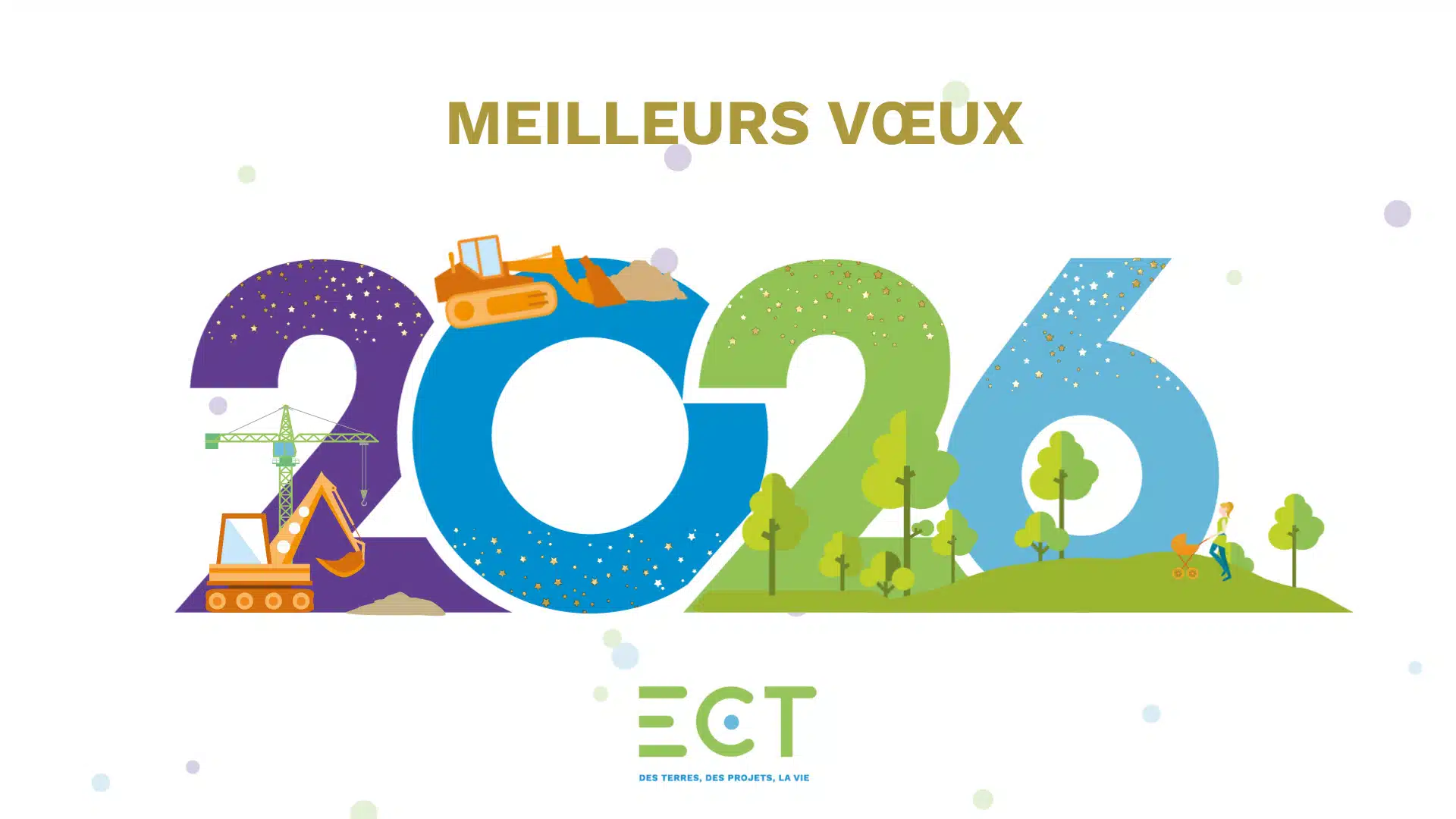Webinar 2023 "Regulations governing the traceability of excavated soil and materials".
ECT accompanies its customers, earthworkers, transporters and producers of excavated soil, to present the latest regulatory developments in the field of
traceability of urban soil.
The webinars organized by ECT on January 13 and 20, and hosted by Reda Semlali, cover the fundamentals of waste status as well as the practical aspects of implementation: chronological register, obligation to transmit to RNDTS, REP building, etc.
Traceability of excavated soil - keeping chronological and RNDTS registers
In order to allow all the players concerned to gradually take control of the new registers, a tolerance period has been opened up for 2022.
EXCAVATED SOIL
- On May 1, 2023, transmission of data from the chronological register to the National Register will be mandatory, with data retroactive to January 1, 2023.
- Keeping a chronological register has been mandatory since January 1, 2022, with a data retention period of 3 years .
Similar obligations will also be introduced in 2023 for non-hazardous waste (rubble, concrete blocks).
SUPPORT ECT
ECT has had a chronological register, database and customer interface for several years.
The Extranet,
provides our customers with time-stamped information on the reception of soil and materials on our sites. Such as DAPs, unloading certificates, detailed balance sheets, etc.
To help you understand which information to keep and which to pass on, 2 explanatory documents are available for our customers.
New in 2023, deployment of the new EPR system for building waste (PMCB)
What is building EPR?
The law on the fight against waste and the circular economy (AGEC) introduced an EPR for PMCBs, rolled out from January 1, 2023. REP Building is a principle of Extended Producer Responsibility applied to the building sector. One of the aims of the law is to combat illegal dumping.
To meet this new obligation, PMCB marketers must join an eco-organization. This membership transfers their obligation in return for a financial contribution. The mission of eco-organizations is to deploy circular economy loops, reuse and recycle building waste.
To date, 4 eco-organizations have obtained EPR approval for the building industry: Ecomaison, Ecominero, Valdelia and Valobat.




